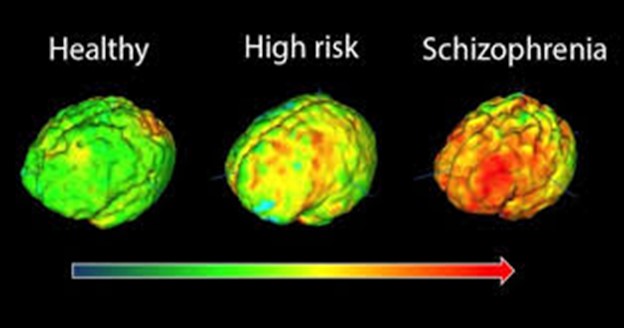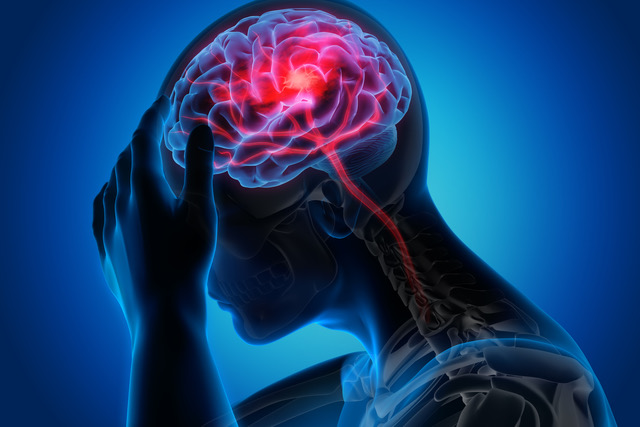As many of you who follow me on social media know, I had the incredible opportunity of attending the 10th Annual Biohacking Conference, hosted by Dave Asprey, two weeks ago in Dallas. While the travel experience was extremely taxing, the conference was oh-so inspiring, uplifting, and exhilarating!!
Listening to a few of my personal heroes—Sara Gottlieb, Daniel Amen, Joseph Mercola, and Joe Dispenza—was clearly a highlight for me. In this week’s blog, I will focus on the wisdom and words of Brain Warrior Daniel Amen, MD.
Dr. Amen’s Approach
Dr. Amen is an icon in the field of brain health and psychiatry. He is the first to ask why his branch of medicine is the only branch that relies only on “subjective” data (the patient’s history and symptoms) and does not obtain objective data through testing. In other words, his specialty of psychiatry was known for guessing, not testing. Amen has changed that—big time!
Dr. Daniel Amen and his clinics have performed over 200,000 SPECT (Single Photon Emission Computed Tomography) scans. This extensive collection of brain scans is one of the largest databases of its kind in the world and has been a significant part of his research and clinical practice in understanding brain health and disorders. Dr. Amen uses these scans to study the brain function of individuals with various mental health conditions, to develop personalized treatment plans, and to advocate for a more nuanced understanding of brain health.

In fact, I loved how he stresses that “mental health” is an old label and it should be changed to “brain health.” The reason I love this approach is that it reinforces what I have also taught that our physiology indeed impacts our psychology. Read on to learn more.
Compound Interest
My readers know that I often discuss compound interest, as it dramatically impacts our physical health. We can track this compounding effect in scans such as this. And, with over 200K scans, Amen can certainly prove this, too.
This graphic below is an example of the negative impact of compounding interest.
I will describe the “high-risk” assaults to the brain below, but the point is that if you continue in those high-risk behaviors, then sooner or later, “dis-ease”/poor brain health, mood disorders, and personality disorders all rear their ugly head. In this patient, it was schizophrenia. In your circle, you may be dealing with other brain health issues.
Let’s go into detail on Amen’s BRIGHT MINDS acronym to explain the insults that cause this pattern.

The BRIGHT MINDS Approach to Understanding Brain Health
Daniel Amen’s BRIGHT MINDS program is a comprehensive approach designed to optimize brain health and function. The program identifies nine key factors that can damage the brain, leading to decreased cognitive performance, mental health issues, and overall decline. Understanding these factors can help us take proactive steps to protect our brain health.
The acronym BRIGHT MINDS stands for various aspects of brain health that the program targets:
B – Blood Flow
Blood flow is essential for delivering oxygen and nutrients to the brain. Poor circulation can lead to cognitive decline and other brain issues. Several factors can impair blood flow to the brain, including:
- High Blood Pressure: Chronic high blood pressure can damage blood vessels, reducing blood flow to the brain and increasing the risk of stroke and cognitive decline.
- Caffeine: While moderate caffeine consumption can be stimulating, excessive intake can constrict blood vessels and reduce blood flow to the brain.
- Sedentary Lifestyle: Lack of physical activity can lead to poor cardiovascular health and reduced blood flow to the brain.
- Nicotine: Smoking and nicotine use can damage blood vessels and decrease blood flow to the brain.
R – Retirement/Aging
Staying mentally active and engaged is crucial for maintaining cognitive function as we age. Retirement and aging can sometimes lead to mental stagnation and isolation, which can negatively impact brain health. Factors include:
- No Learning: The absence of continuous learning and mental challenges can lead to cognitive decline. Engaging in new learning activities keeps the brain active.
- Loneliness: Social isolation and loneliness can contribute to depression and cognitive decline. Maintaining social connections is essential for brain health.
- Isolation: Similar to loneliness, physical and emotional isolation can negatively affect mental health and cognitive function.
- High Iron Levels: Excess iron accumulation in the brain can contribute to oxidative stress and neurodegenerative diseases. Post-menopausal women must be careful of this, as they no longer shed blood monthly. It is important to check that your stored iron or Ferritin levels are less than 60.
I – Inflammation
Chronic inflammation can damage brain cells and is linked to numerous cognitive disorders, including Alzheimer’s disease. Inflammation in the brain can be caused by various factors, including:
- Poor Diet: Diets high in processed foods, sugars, and unhealthy fats can increase inflammation.
- Stress: Chronic stress can trigger inflammatory responses in the body, affecting brain health.
- Chronic Infections: Persistent infections can lead to ongoing inflammation, impacting brain function.
G – Genetics
Genetic factors can predispose individuals to certain neurological conditions, but lifestyle choices can influence their impact. While we cannot change our genes, we can modify our environment and behaviors to mitigate genetic risks. Factors include:
- Family History: Understanding family medical history can help identify genetic predispositions to brain health issues.
- Epigenetics: Lifestyle choices can influence gene expression, potentially mitigating genetic risks. (You know this is one of my FAV topics and is why I wrote my new book, which is being released on September 10th! Click here to pre-order and save – www.CreateTheVitalityYouCrave.com )
H – Head Trauma
Head injuries can cause significant damage to the brain and impair cognitive functions. Repeated head trauma is linked to chronic traumatic encephalopathy (CTE), a condition that affects athletes and military personnel. Factors include:
- Accidents: Falls, car accidents, and sports injuries can lead to head trauma.
- Lack of Protection: Not using protective gear during high-risk activities increases the risk of head injuries.

T – Toxins
Exposure to environmental toxins can harm brain cells and impair brain function. Toxins like heavy metals, pesticides, and chemicals in household products can accumulate in the body and affect the brain. Factors include:
- Pollution: Air and water pollution can expose individuals to harmful toxins. Pay close attention to your indoor air quality! See this blog if you want to learn more about mold
- Household Chemicals: Regular use of certain household cleaning products can lead to toxin buildup.
- Industrial Chemicals: Exposure to industrial chemicals and pesticides can have long-term effects on brain health.
M – Mental Health
Mental health issues such as depression and anxiety can negatively impact brain health and cognitive function. If left untreated, these conditions can lead to changes in brain structure and function. Factors include:
- Chronic Stress: Ongoing stress can lead to anxiety and depression, affecting brain health.
- Untreated Mental Illness: Failing to address mental health issues can exacerbate cognitive decline.
I – Immunity/Infection
Chronic infections and a weakened immune system can affect brain health. Conditions like Lyme disease, for example, can have neurological effects if not properly treated. Factors include:
- Weakened Immune System: A compromised immune system can make the brain more vulnerable to infections.
- Chronic Infections: Persistent infections can cause inflammation and damage to brain cells.
N – Neurohormones
Hormonal imbalances can affect mood, energy levels, and cognitive function. Hormones like estrogen, testosterone, thyroid hormones, and cortisol can significantly impact brain health. Factors include:
- Aging: Hormonal changes that occur with aging can affect brain function.
- Stress: Chronic stress can lead to imbalances in hormones like cortisol.
- Thyroid Issues: Thyroid hormone imbalances can significantly impact cognitive function and mood.
D-Diabesity
Diabesity is a term that combines diabetes and obesity, reflecting the close relationship between these two conditions. Both diabetes and obesity significantly impact brain health in several detrimental ways:
- Insulin Resistance: This resistance leads to high levels of glucose in the blood, which can damage blood vessels and impair blood flow to the brain.
- Inflammation: Obesity often leads to chronic inflammation, which can damage brain cells and exacerbate conditions like Alzheimer’s disease.
- Oxidative Stress: High blood sugar levels increase oxidative stress, leading to the production of free radicals that can damage brain cells and other tissues.
- Neurotransmitter Imbalance: Insulin resistance and high glucose levels can disrupt the balance of neurotransmitters and chemicals that transmit signals in the brain.
- Blood-Brain Barrier Damage: Diabetes can compromise the integrity of the protective layer that regulates substances’ entry into the brain.

Sleep Deprivation
Sleep deprivation has a profound impact on brain health, affecting both short-term cognitive function and long-term brain structure and function:
- Cognitive Impairment: Lack of sleep impairs attention, memory, and executive function.
- Emotional Regulation: Sleep deprivation affects the brain regions responsible for emotional regulation, such as the amygdala and prefrontal cortex.
- Brain Cell Damage: Chronic sleep deprivation can lead to the loss of brain cells, particularly in regions involved in learning and memory.
- Amyloid Plaque Buildup: Sleep plays a critical role in clearing amyloid-beta, a protein associated with Alzheimer’s disease, from the brain.
- Inflammation: Sleep deprivation triggers an inflammatory response in the body, increasing levels of inflammatory markers associated with various neurodegenerative diseases
- Hormonal Imbalances: Sleep regulates the production of various hormones, including those involved in stress (cortisol) and hunger (ghrelin and leptin).
Gluten and Dairy
In our live lecture, Dr. Amen added to the bottom of the slide (although it does not fit the Bright Minds acronym, Gluten and Dairy with ???. In my own experience. Gluten and Dairy had a huge negative impact on my brain health. Read below.
My Personal and Professional Experience
Let me tell my story now that you know the 9 BRIGHT MINDS categories. My first brain trauma was at 6 weeks old when I was thrown from the front seat of the car to the floor during an accident. Then, other injuries from being rear-ended in an automobile twice also took a toll. Little did I know that I had genetics that might exacerbate all of this with poor detoxification due to Glutathione pathway mutations. Thus, when I was exposed to toxins like heavy metals, mold, and Epstein Barre, my body could not clear them. Gluten and Dairy also created restless leg syndrome, which aggravated my brain and disrupted my sleep immensely.
Now, I took aggressive measures to heal my brain before I met Dr. Amen, but I am soooo glad that I had my brain scanned. Dr. Amen was opening one of his 11 clinics in Atlanta. I was an early patient and early healthcare provider who participated and was trained by him. Seeing that what I had done already to heal my brain was working was such a relief. And that there were a few things that I could tweak to get better results. In my case, adding a GABA supplement and continuing my gluten restriction was exactly what my basil ganglia needed to calm down the restless legs.
As I coached some of Dr. Amen’s clients and accompanied them to see their scan results and hear their treatment recommendations, I was thrilled to recommend them to Amen and his team!!
Conclusion
Understanding these nine factors is the first step toward protecting and optimizing our brain health. Each factor represents a potential threat to our cognitive well-being, but by recognizing and addressing these issues, we can take proactive steps to maintain and enhance brain function. In the next part of this series, we’ll explore the BRIGHT MINDS approach to healing the brain and mitigating these damaging factors.
Again, I cover these 9 factors in detail in my upcoming book “Create the Vitality You Crave: Epigenetics 101 to Unlock Your Healing Power” which will be released on September 10th. Save big time and be the 1st to read it by getting an early copy.
